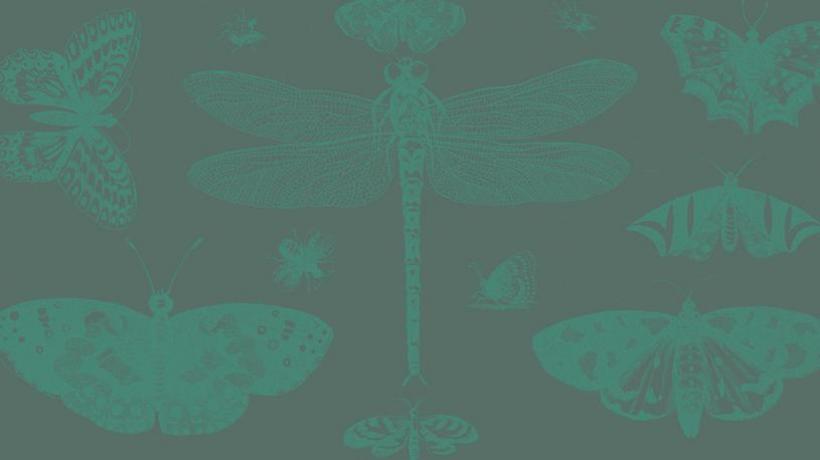The Journalist in Residence program was established in 2013 and supports journalism on the history of science, aiming to foster the communication of central themes in the history of science to the broader public and to enhance the role of the discipline within the humanities, social sciences, and natural sciences. Seeking to make its research more visible, the Institute has invited journalists to take advantage of research resources for their own projects. To support dialogue between journalists and researchers, the journalists each organize one workshop at the Institute during their stay.
Interested in applying for the program?
Find out more about the Journalist-in-Residence program on our career page. A call for applications for the 2026 cohort is currently underway with a deadline of June 2, 2025.
Journalists in Residence
-
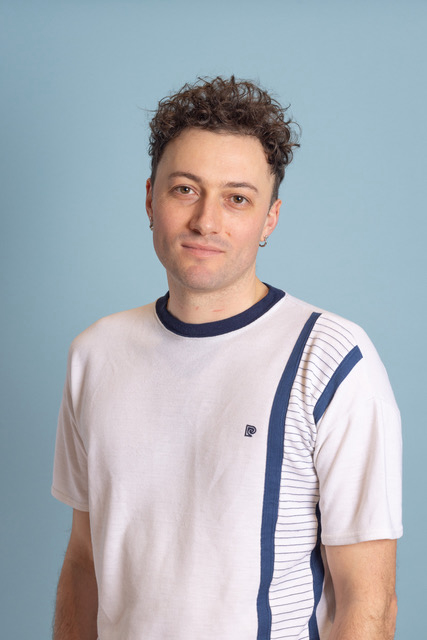 Thomas Lewton (April–June 2025)
Thomas Lewton (April–June 2025)Thomas Lewton is a science journalist and editor based in London. They are a commissioning features editor at New Scientist, the world's most popular science magazine, where they cover physics, neuroscience, technology, and the environment. In their journalism they scratch a lifelong itch trying to figure out how we came to be where we are now—from the Big Bang, to the origin of life and the emergence of consciousness.
Thomas originally studied physics, thinking that telescopes and particle colliders would offer answers, but instead they raised more questions: Is a theory of everything even possible? Does the scientific method get anywhere close to truth? And, perhaps critically, how do the practices and institutions of science need to change if we’re going to create a liveable future? Thomas also leads investigations at Eco-Bot.Net, which reveals the extent and methods of climate change disinformation online, in collaboration with Oxford University's Climate Litigation Lab.
During their time at the MPIWG, Thomas will be based in the Department
“Artifacts, Action, Knowledge” where they will work on the project "Bringing Astrophysics 'Down to Earth': a Cosmopolitics of Astronomy and Indigenous Worlds” as well as deliver a practical journalism training workshop to MPIWG members.Photo by Tim Boddy, 2025.
-
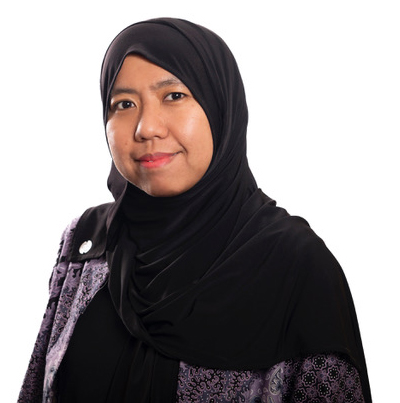 Dyna Rochmyaningsih (September–October 2025)
Dyna Rochmyaningsih (September–October 2025)Dyna Rochmyaningsih is a freelance science journalist whose works have appeared in Science Magazine, Nature, Mongabay, The Christian Science Monitor, Undark, Sapiens, BBC Future, bioGraphic, and other outlets. From her home in rural Sumatra, she has written stories at the intersection of science and society in Indonesia, the Global South, and the Islamic World.
She also received support from National Geographic, the International Women’s Media Foundation, and Pulitzer’s Rainforest Journalism Fund, for her reporting on the environmental crisis in Indonesia. She led the Society of Indonesian Science Journalists (SISJ) 2020-2023 and was named as a Knight Science Journalism (KSJ) fellow at Massachusetts Institute of Technology MIT (2023/2024).
During her time at the MPIWG she will be based in Department “Knowledge Systems and Collective Life,” where she will work on her project “Alternative Sources of Knowledge in Environmental Reporting" as well as deliver a practical journalism training workshop to MPIWG members.
Alumni
-
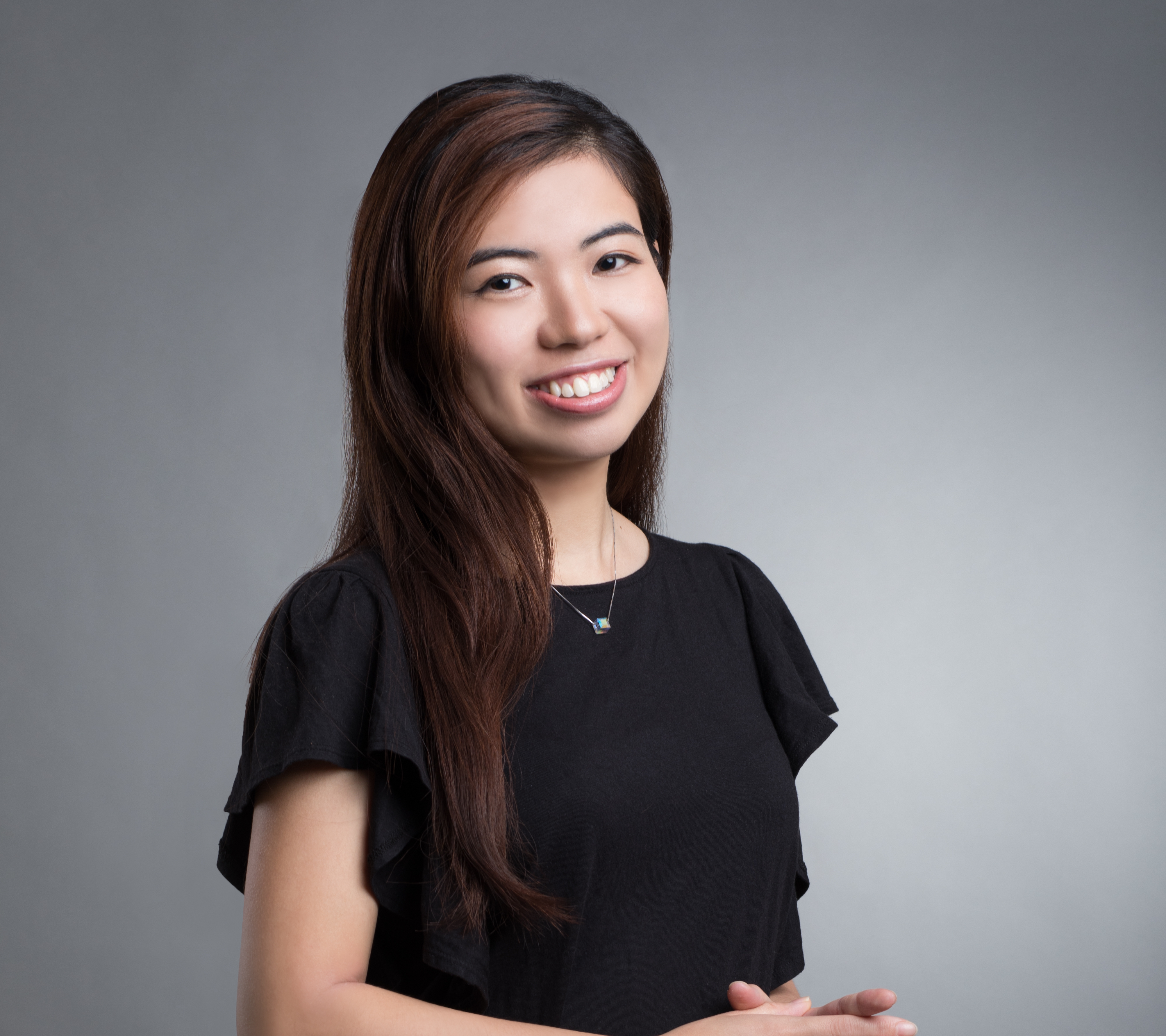 Chermaine Lee (2024)
Chermaine Lee (2024)Chermaine Lee is a freelance multimedia journalist from Hong Kong who is now based in Berlin. She covers human rights and climate issues in Asia and Europe. She learned the ropes of journalism doing field production covering Hong Kong’s biggest pro-democracy protests in history. She writes feature articles, produces videos, TV packages, and podcasts for a range of media, including Deutsche Welle, BBC Future, CNN, Fair Planet, Voice of America, Sustainable Asia, and others.
She traveled to Dubai last December as Climate Tracker’s COP28 in-person climate justice reporting fellow, after finishing a six-month LEDE fellowship on bringing solutions journalism to the world. Before that, she was part of the second cohort of the Oxford Climate Journalism Network and was a fellow to cover the Innovate4Climate conference in Bilbao, Spain organized by the World Bank.
Project: Climate Colonization in Asia
Chermaine’s research project looks into the impacts of colonialism on countries vulnerable to extreme weather events, with a special focus on Asia. Examples include the energy colonialism in Hokkaido and bushfires in India. Through the lens of history and modern analysis, the project seeks to look for the best environmental solutions for climate adaptation in such areas. Chermaine plans to produce journalistic work on the best and the most just climate solutions suitable for Asia amid increasingly frequent and severe disasters.
During her time at the MPIWG, Chermaine will be based in Department II, “Knowledge Systems and Collective Life.”
-
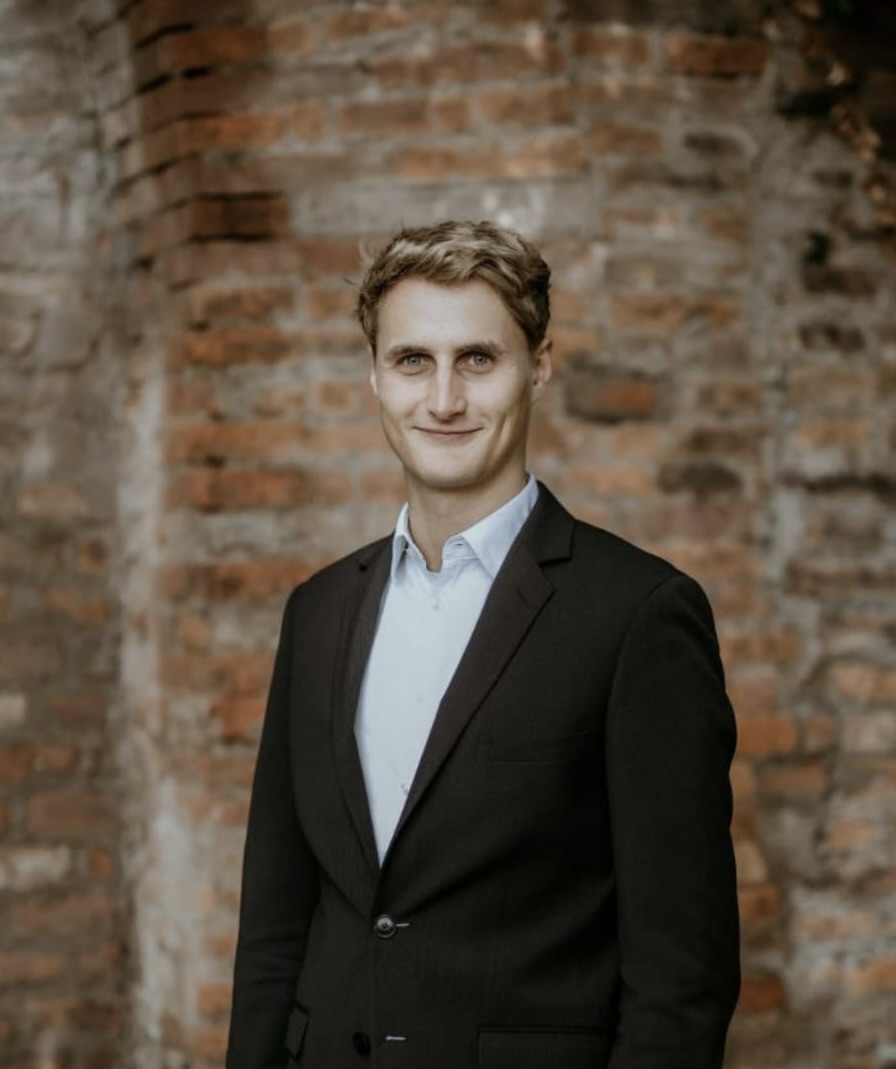 Merlin Wassermann (2024)
Merlin Wassermann (2024)Merlin Wassermann is a freelance journalist based in Munich, Germany. He holds a master´s degree in history with a special focus on the history of science.
His work focuses on a historical and sociological approach to mental health as well as local measures to reduce CO2 emissions and mitigate climate change. He has written for the Süddeutsche Zeitung, the Frankfurter Allgemeine Sonntagszeitung, Spektrum: Gehirn und Geist, Psychologie Heute, Hohe Luft, and—last but not least—Der Postillon.
Project: "Primacy of interpretation” in medical practice and research
During his stay at the MPIWG from February to March 2024, Merlin Wassermann was based in the Max Planck Research Group “Practices of Validation in the Biomedical Sciences” (led by Lara Keuck). Here he was researching the question of the “primacy of interpretation” in medical practice and research: Under which circumstances did medical professionals get to interpret symptoms, diseases, and difference in patients, to which degree did patients retain this prerogative, and how did they negotiate their competing interests at different points in time?
-
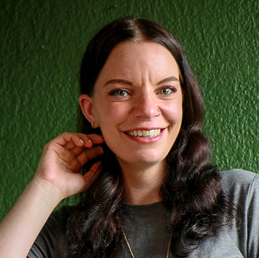 Elna Schütz (2023)
Elna Schütz (2023)Elna Schütz is a South African freelance journalist who works locally and internationally in writing and audio, for the likes of the Economist and the BBC. She focuses on a wide range of topics from business to science and health, with a particular interest in how personal stories reflect wider circumstances.
Elna has also worked in the world of podcasting for over five years and been the lead producer for several international shows, including about healthcare and human rights. Her work has been nominated for Liberty Radio Awards several times and she won the 2018 Discovery Health Journalism Award for Best Radio Journalism. She was honoured by her alma mater with a JMS50 Alumni Award.https://elnaschutz.com/
Project: The Origins of “Normal"
There is a subtle but enduring concept that underpins a lot of the discussion and communication around science, particularly health, yet is rarely addressed directly. When criticizing, comparing, or celebrating something or someone, the comment is usually given in relation to an invisible, accepted level of the average or ideal. But what exactly is this “normal” and how does it get defined? Elna’s research will explore how the concept came about and is used, either purposefully or unconsciously, in healthcare and health research. For instance, most psychological and psychiatric conditions are defined in relation to neurotypical people, but how are the boundaries and characteristics of this baseline decided? When is someone sick or a result abnormal enough to warrant attention? And how do these definitions—subtle or not—go on to shape interventions? A second part of Elna's project will explore how the perceived “normal" has influenced the general public’s understanding of themselves and others. Elna intends to produce work that makes these lines of inquiry relevant and applicable to a wider audience.
During her time at the MPIWG, Elna was based in the Max Planck Research Group Practices of Validation in the Biomedical Sciences.Elna wrote about her experience as a journalist in residence in this article for IJNet.
Image Credit: Photo Source, Yellow Paint Photography, 2023.
-
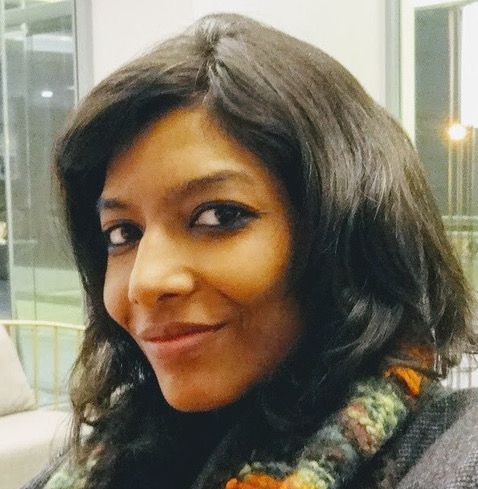 Sahana Ghosh (2023)
Sahana Ghosh (2023)Biography
Sahana Ghosh is a science journalist based in India. She switched gears from studying microbiology to practicing journalism in 2012. She reports on biodiversity, climate change, indigenous science, environmental health, and gender, specifically focusing on attribution, scientific accuracy and inclusivity, science-policy interfaces, and multilateral mechanisms in science.
Sahana is an Associate Editor at Nature India. She was previously a Contributing Editor at Mongabay India, leading climate change and biodiversity reportage, with a network of diverse independent journalists in India. In 2022–23 she developed and hosted the Imprints podcast series at Mongabay featuring five Indian paleo scientists helping reconstruct past climate history in the Indian subcontinent, prompting her to look at the Anthropocene through a journalistic lens. She has worked with multiple multicultural and global teams and is a member of the Oxford Climate Journalism Network and founder-member at the Science Journalists Association of India.
Sahana is an alumna of the US Department of State’s International Visitor Leadership Program (2019) and a former Earth Journalism Network and Nature India Science Media programme fellow. As a LEDE fellow with the Solutions Journalism Network (2019–20), she produced a series of solutions-focused stories for the “Environment and Her” series she anchors for Mongabay India. In 2021, she was honored by the Global Landscapes Forum (GLF) as one of 16 Women Restoring the Earth through science, policy, journalism, music, land rights, and many other creative and effective avenues.
Project
During her time at the MPIWG (May–June 2023), Sahana focused on storytelling on deep-sea expeditions in the Indian Ocean in the 19th to 20th centuries and the significance of historical marine data in signaling the Anthropocene.
-
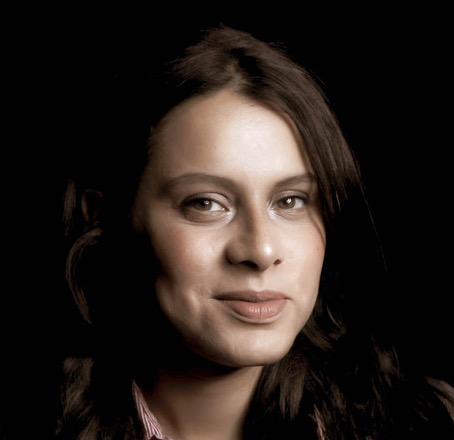 Pakinam Amer (2022)BiographyPakinam Amer is an Emmy-winning journalist and a science and technology writer. She’s an editor, podcaster, experimental storyteller, and formerly, a Knight Science Journalism fellow at the Massachusetts Institute of Technology. She was the senior writer of In Event of Moon Disaster, an Emmy-winning interactive documentary and narrative project centered around deep fake technology and disinformation, and produced by the MIT Center for Advanced Virtuality where she is a research affiliate. Her stories and podcasts have appeared in Nature, Scientific American, the Boston Globe, the Associated Press, and elsewhere. Previously, Pakinam was the editor-in-chief of Nature Middle East, the regional edition of Nature. During that time, she hosted and produced the region’s first science podcast for English-speaking audiences.Pakinam has a BA in journalism and mass communication from the American University in Cairo, and an MA in Investigative Journalism from City, University of London. She’s been a journalist for nearly 17 years.ProjectDuring her online residency in Department III from May to June 2022, Pakinam undertook the project "The Eclectic Origins of Reconstructed Science Imagery,” in which she explored: Where did visualization of science as such begin? What structures of knowledge historically inspired imaging in science? How much do culture and art intersect with the science of computational and reconstructed imaging, of turning abstracts and numbers into visuals? She worked closely with researchers in Department III to explore ideas related to the aesthetics of how we compute, document, and understand the world through images and visualizations. In addition, she delivered a series of workshops on virtual reality, artificial intelligence, writing for media and press, and audio storytelling.
Pakinam Amer (2022)BiographyPakinam Amer is an Emmy-winning journalist and a science and technology writer. She’s an editor, podcaster, experimental storyteller, and formerly, a Knight Science Journalism fellow at the Massachusetts Institute of Technology. She was the senior writer of In Event of Moon Disaster, an Emmy-winning interactive documentary and narrative project centered around deep fake technology and disinformation, and produced by the MIT Center for Advanced Virtuality where she is a research affiliate. Her stories and podcasts have appeared in Nature, Scientific American, the Boston Globe, the Associated Press, and elsewhere. Previously, Pakinam was the editor-in-chief of Nature Middle East, the regional edition of Nature. During that time, she hosted and produced the region’s first science podcast for English-speaking audiences.Pakinam has a BA in journalism and mass communication from the American University in Cairo, and an MA in Investigative Journalism from City, University of London. She’s been a journalist for nearly 17 years.ProjectDuring her online residency in Department III from May to June 2022, Pakinam undertook the project "The Eclectic Origins of Reconstructed Science Imagery,” in which she explored: Where did visualization of science as such begin? What structures of knowledge historically inspired imaging in science? How much do culture and art intersect with the science of computational and reconstructed imaging, of turning abstracts and numbers into visuals? She worked closely with researchers in Department III to explore ideas related to the aesthetics of how we compute, document, and understand the world through images and visualizations. In addition, she delivered a series of workshops on virtual reality, artificial intelligence, writing for media and press, and audio storytelling. -
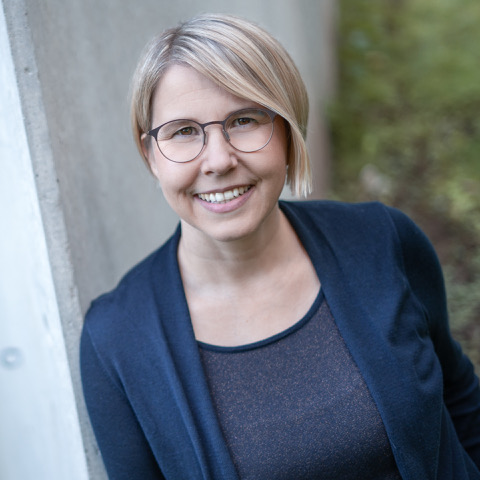 Anne Preger (2021)
Anne Preger (2021)Biography
Anne Preger is a radio and online journalist and a podcast producer focused on science and environment. She holds a degree in Geoecology and covers recent scientific developments and science news for German radio programs including Deutschlandfunk Nova and WDR Quarks. She does in-depth reporting on environmental topics for Riffreporter, and produces science related podcasts for Quarks Storys, WDR ZeitZeichen and Deutschlandfunk Kalenderblatt.
Project
Anne Preger joined Department I from October to November 2021. During her time at the MPIWG, she explored the history of nitrogen acquisition for food production and warfare, and how the human use of nitrogen shapes the world today.
-
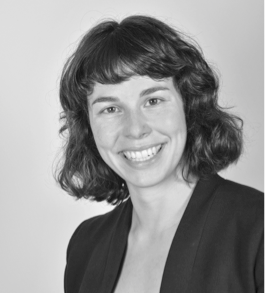 Rachel Waldholz (2019–2020)
Rachel Waldholz (2019–2020)Biography
Rachel Waldholz is a radio journalist and podcast producer focused on climate change, energy and the environment. Her work has appeared on US radio programs including NPR’s Morning Edition and All Things Considered, PRI’s The World and Marketplace. She previously covered energy and the environment for Alaska Public Media in Anchorage, where she was part of the team that produced the podcasts Midnight Oil, on the history of Alaska’s oil industry, and The Big Thaw, on the impacts of climate change. She also co-produced the documentary film A Confused War. In 2018-2019, Waldholz was a Robert Bosch Foundation Fellow, exploring German and European climate policy.
Project
Rachel joined Department I as a Journalist in Residence from November 2019 to January 2020. During her time at the MPIWG, she dug into the history of past energy transitions, and what they can teach us about decarbonization today.
-
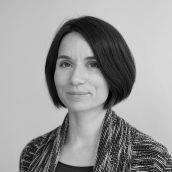 Anja Krieger (2019)
Anja Krieger (2019)Anja Krieger joined Department I from February 1 to March 31, 2019. She is the producer of Plastisphere, a podcast on plastic, people, and the planet. As an independent journalist, Anja has contributed to the German national public Deutschlandradios, and in English to the Undark podcast, Ensia magazine, and several Nature supplements. She is a member of RiffReporter, a new journalism collaborative and ecosystem for in-depth freelance journalism in Germany. In 2015 and 2016, Anja was a Knight Science Journalism Fellow at Massachusetts Institute of Technology (MIT) where she delved into environmental sciences and science writing. During her time at the MPIWG, Anja explored the history of science of the plastic pollution issue in the 20th and 21st century.
-
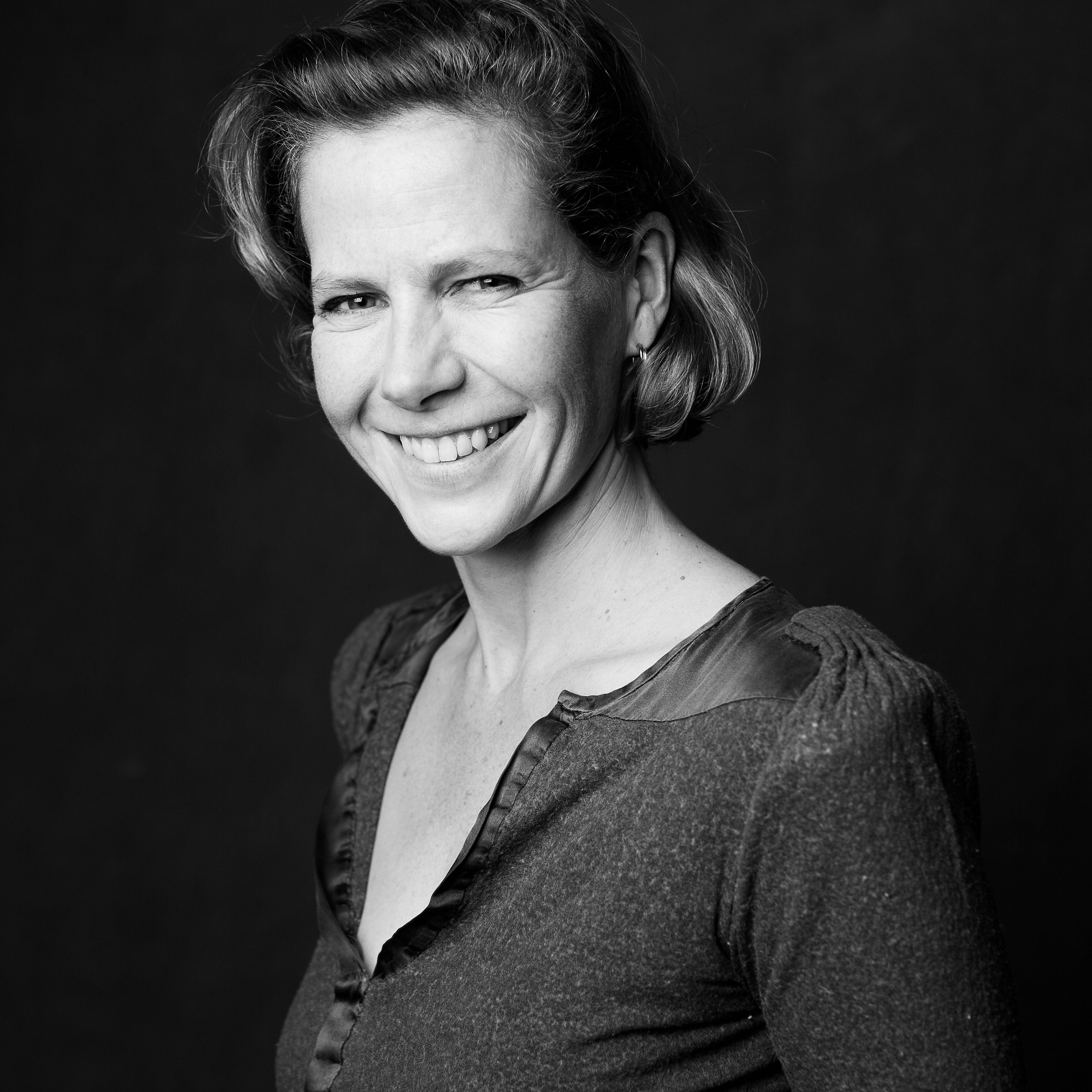 Laura Spinney (2019)
Laura Spinney (2019)Laura Spinney joined Department III from April 1 to May 31, 2019. She has published several books including two novels, The Doctor and The Quick, a volume of oral history called Rue Centrale—in French and English—and, in 2017, a non-fiction work entitled Pale Rider: The Spanish Flu of 1918 and How It Changed the World, which was translated into eight languages. She writes on science for National Geographic, The Economist, Nature, and The Guardian among others. Her current interests lie in the millennia-long search for patterns in history, and the mathematical historians who are now describing those patterns—using the maths of complexity—and using them to predict the future.
-
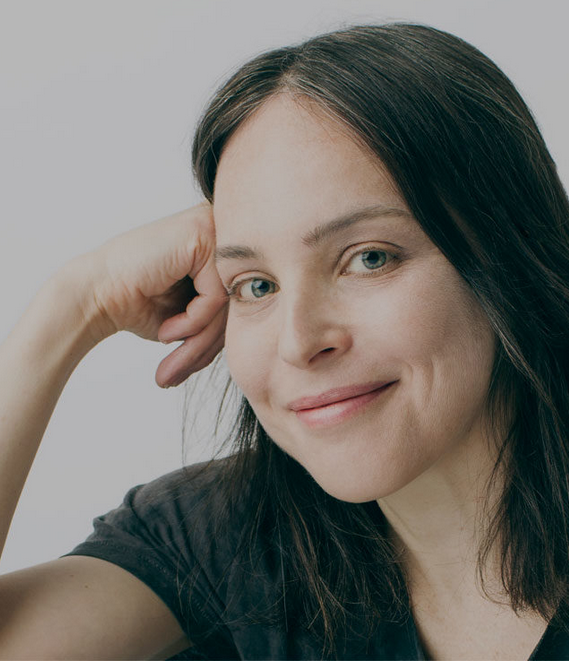 Siobhan Roberts (2018)
Siobhan Roberts (2018)Siobhan Roberts joined Department II from October 8 to December 15, 2018. She is a contributor at The New Yorker’s science and tech blog “Elements,” and Quanta. Over the years she’s written for The New York Times, The Guardian, Smithsonian, The Walrus, and The Globe and Mail, among other publications. She is the author, most recently, of Genius at Play, The Curious Mind of John Horton Conway, which was a sequel of sorts to her first book, King of Infinite Space: Donald Coxeter, The Man Who Saved Geometry. At the MPIWG she worked on researching for her latest project, a biography of the Swiss-American mathematical logician Verena Huber-Dyson—exploring narrative themes such as gender and sexual politics, and notions of evidence, proof, and objectivity. As Verena remarked, “There is more to truth than can be caught by proof.”
-
Julia Voss (2018)
Julia Voss wrote her dissertation on "Darwin's Paintings. Views of the Theory of Evolution” (S. Fischer Verlag, 2007). She went on to work at the Frankfurter Allgemeine Zeitung (FAZ), leading the art department for ten years and serving as deputy director of the arts section. Julia Voss continues to write freely as a journalist, including an art column, "Fragen Sie Julia Voss,” in the Frankfurter Allgemeine Sonntagszeitung. Since 2015 she has been Honorary Professor at the Institute of Philosophy and Art History, Leuphana University of Lüneburg. Currently, Voss is researching the biography of the Swedish artist Hilma af Klint (1862–1944), who dealt intensively with the natural sciences of her time and worked as a technical draftsperson at the Veterinary Institute in Stockholm. During her time at the Institute, Voss ran a workshop entitled "What's A Story? A Journalist's Perspective on Writing History of Science.”
-
Olivia Judson (2018)
Olivia Judson works at the intersection between science and journalism. A former staff writer for The Economist, she has written for a wide range of newspapers and magazines, including National Geographic, The Guardian, and The New York Times (where, for two years, she wrote a weekly online column). Her academic background, however, is in evolutionary biology, and she is currently writing a history of life and Earth, aimed at a general audience. While at the MPIWG she developed her research on the history of the ideas, with a particular focus on work performed by scientists educated in 1880s St. Petersburg, such as Vladmir Vernadsky and Sergei Winogradsky.
-
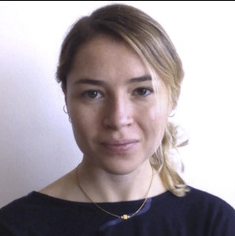 Josephine Lethbridge (2017)
Josephine Lethbridge (2017)Josephine Lethbridge is Interdisciplinary Editor at The Conversation UK, where she commissions articles by academics on their interdisciplinary research, helping them to tweak angles so that they are more topical and editing the text so that they better appeal to a public audience. Prior to her new role, which is funded by the Independent Social Research Foundation, she spent over three years as The Conversation UK’s initial Arts + Culture Editor.
She also spent two years studying part-time towards an MSc in Science, Technology, and Society at University College London, where, amongst other things, she looked at the history of the idea of going to war on global warming and visions of geoengineering the climate. At the MPIWG, she gave a workshop on how to write for a general audience and commission and edit a series of articles from MPIWG academics.
-
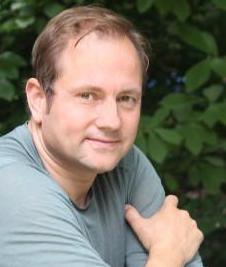 Christian Schwägerl (2017)
Christian Schwägerl (2017)Christian Schwägerl is a journalist and book author. He served as a culture and science staff correspondent for Frankfurter Allgemeine Zeitung (2001–2008), and a political correspondent for DER SPIEGEL (2008–2012) before becoming a freelance writer. He has written several books, helped to establish the Anthropocene Project (Haus der Kulturen der Welt, HKW), and co-directed and co-curated the “Welcome to the Anthropocene” exhibition at the Deutsches Museum. Most recently, Schwägerl co-founded RiffReporter, a cooperative of Germany’s leading freelance journalists in the fields of science, society, environment, and technology. At the MPIWG he was based in Department I, working on a project using Darwin’s Reef Paradox as a model for media innovation.
During his time at the Institute he delivered a workshop on “Building a Media Coral Reef: Can Ecosystem Research Inspire Journalism in a Time of Media Crisis?”
-
Andreas Bernard (2015)
Andreas Bernard was an editor for the culture section and magazine of the daily Süddeutsche Zeitung and is now a freelance journalist, writing for papers such as Frankfurter Allgemeine Sonntagszeitung. In 2013, he was awarded the German Neurological Society’s journalism prize. Since 2014 he has held a professorship at the Center for Digital Cultures, Leuphana University of Lüneburg, and he is currently working on a project entitled “Self-Design: Images of the Human Today.” He is the author of numerous fiction and nonfiction books.
During his time at the Institute he delivered a workshop on “Writing Journalism, Writing History of Science: Contradiction or Complement?”
-
Thomas De Padova (2014)
Thomas De Padova is a freelance journalist who has written for Der Tagesspiegel, Die Zeit and Frankfurter Allgemeine Zeitung and is the author of a number of books on the history of science. During his residency, he worked on his book Allein gegen die Schwerkraft: Einstein 1914–1918, published by Hanser in 2015.
During his time at the Institute he delivered a workshop on “How to Write A Press Release on Galileo’s 450th Birthday.”
-
Daniel A. Gross (2013–2014)
Daniel A. Gross was a junior Journalist-in-Residence working on several topics grounded in the history of science. During his stay, he published articles on food technology, on the uses of the cyclotron and the Harvard collection of instruments, and on the technological history of travel. His journalistic writing has been published in Smithsonian, Chemical Heritage, and Slate.
-
Alexander Mäder (2013)
Alexander Mäder is the science editor of the daily Stuttgarter Zeitung, having previously worked for Berliner Zeitung. He served as chair of the German Science Journalists’ Association from 2009 to 2011. At the MPIWG, he worked on a project concerning scientific policy advice, and established a Facebook blog on his experiences at the Institute.
During his time at the Institute he delivered a workshop on “What History of Science Can Contribute to the Media.”
-
Sarah Everts (2013)
Sarah Everts is the European correspondent for Chemical & Engineering News, based in Berlin, and a freelance science journalist for a variety of media outlets. She has written on many topics, including human pheromone debates, how to build a spacesuit appropriate for a Mars mission, and the role of chemists during the Third Reich. During her stay, she focused on a project about the history, culture, and science of sweat.
During her time at the Institute she delivered a workshop on “Adventures in Communication: When Academics Speak to Journalists.”
-
Klaus Taschwer (2013)
Klaus Taschwer is science editor of the Austrian daily Der Standard and editor of the science blog “Taschwer forscht nach.” He was the founder and editor of the popular scientific journal Heureka! (1997–2009) and co-director of the degree program “SciMedia” for science communication (2003–2006) in Vienna. He has published a study on anti-Semitism at Vienna University, and is working on a biography of the Viennese biologist Paul Kammerer (1880–1926).
During his time at the Institute he delivered a workshop on “Communicating History of Science in/to the Media.”
More Information
Journalist-in-Residence ProgramRelated
Read about our "Journalists Meet Researchers" event for Max Planck Day, in cooperation with the MPI for Human Development, MPI for Molecular Genetics, and the Electronic Media School (ems) in Potsdam.
Read about alumna Elna Schütz’s experience as a journalist in residence in her article for IJNet.

